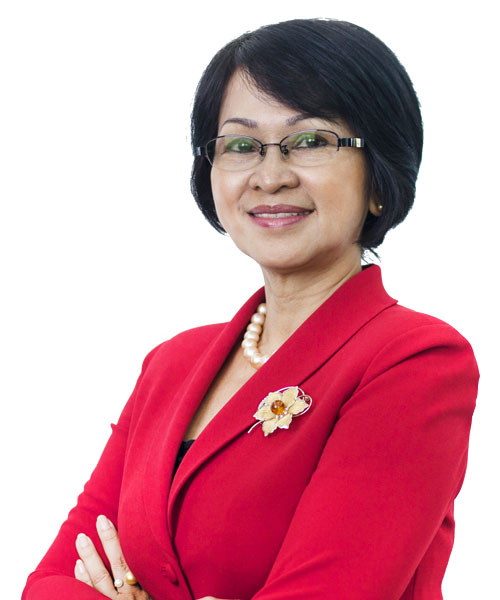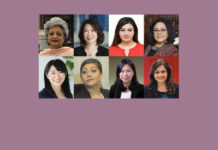Tough Khmer socio-political climate made for resilience and character
Mealy Khieu never wanted to be a lawyer. After marrying Sok Siphana – a former Commerce Secretary of State in the Cambodian government and current managing partner at SokSiphana & Associates – Khieu worked as an office manager at another law firm.
Eventually, she decided to study law, and qualified in 2004, beginning her career as a freelance consultant so she could balance work and family life. When Sok was appointed to the United Nations in Switzerland, Khieu quit her job to become a full-time homemaker for four years.

Partner
Soksiphana & Associates, Phnom Penh
When they returned to Cambodia, the pair decided to relaunch Sok’s firm. Khieu later added to her credentials with a Masters in Law, which Sok encouraged her to pursue. “My husband was very supportive. He appreciated higher education and believed in giving back to society. He never thought I should stay at home.”
But it wasn’t all smooth sailing. “I always tell the younger generation, don’t just look at me as a snapshot,” says Khieu. “I went through hardship, I went through the genocide regime, and experienced communism. I didn’t get to do what I wanted.”
Khieu says she was lucky to have a supportive and progressive family. Her mother, who despite growing up in a very conservative society where education was reserved for sons, was strongly committed to educating Khieu to give her a bright future. “Both my parents believed in the importance of education,” says Khieu.
“My father would say, ‘If I give you a lot of property, one day it could be ruined or stolen, but if I give you an education, it will help you for the rest of your life.’ I saw this during the Khmer Rouge and Pol Pot’s reign; everyone who had a lot of assets was left with nothing.”
Khieu believes the strife of living through such an oppressive regime was character-building. “Somehow, after going through something like that, you feel resilient to a lot of challenges. It drives you to think positively and take things in your stride.”
Khieu may have beaten the odds to become one of 300 women lawyers among a total of 1,000 in Cambodia, but some cast doubt on her abilities. “Sometimes when you negotiate with a party from a big company, people don’t want to deal with you,” she says.
“I experienced that a few times until I developed thick skin. But it’s not a bad thing. If you don’t get a few scars, you won’t work hard. If you don’t jump into the water, you won’t be able to swim. I always tell my female associates, if someone looks down upon you, use it to push yourself to work harder, to learn and know more than your male colleagues.”
Khieu also believes aspiring lawyers would do well to deepen their knowledge of the local and regional business and political landscape. This, she says, can start at an early age. “Most people only focus on hard skills and I think that’s partly down to the parents’ culture of wanting to see A grades. You have to give your kids varied opportunities.
“For example, in other countries when you’re in high school, it’s common to have a job, say at a coffee shop. But not in Cambodia. Parents are overprotective and that puts kids in a hard position later. We should create a movement to change that mindset.”
Most importantly, Khieu emphasizes the need for self-belief. “We have to push women to invest in themselves, know their worth, set life goals, and be unafraid of making mistakes. Women are so fearful of failure and social judgments. We have to overcome this.”
Senior women lawyers across Asia share personal stories of successes, struggles and strategies for a more inclusive legal profession. The following mosaic of personal stories identifies some of the nuances that typify women’s experiences in particular Asian jurisdictions, while also drawing on the wealth of shared experiences that bind them.


























